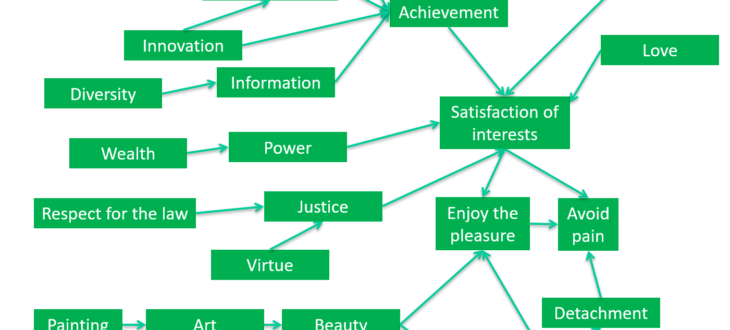“Take care of happiness and the meaning of life will take care of itself”
—David Pearce
There are many things that we consider valuable as complexity, beauty, life, love, virtue, transcendence, knowledge, power, intelligence etc. In this very moment innumerable beings are experiencing wonderful things like love, pleasure, orgasm, recognition or friendship.
In certain contexts there is a tendency to consider technology intrinsically valuable or, in a broader sense, complexity or knowledge. This attitude could be an evolution of curiosity, or seen in another way, of the interest in avoiding boredom, enhanced by the unstoppable growth of the economic impact of technology, which could be summed up in a “I am entertained and meanwhile I earn money” which serves to fulfill the proper function of a (metaphorically) blind, ignorant and unconscious reproductive agent, another cog in the machinery of evolution. In competition with values such as “knowledge”, “complexity”, “innovation”, “intelligence” and “technology”, we have other things also considered valuable: beauty, life, love, virtue, transcendence, power, detachment, tradition, satisfaction, achievement, pleasure, equality etc.
What is valuable?
Things that under certain paradigms are considered as “Good”:
friendship, adventure, knowledge, freedom, diversity, justice, beauty, fairness, and progress
What has a negative value?
Things that under certain paradigms are considered as “Bad”:
injustice, unfairness, sameness, destruction of beautiful things, ignorance, regress, alienation, prejudice

Axiology is the branch of philosophy dedicated to the study of value. I would call “experiential axiology” (in the sense of experienced-based) to the idea that things that have intrinsic value (rather that just an instrumental value) require someone having an experience. For instance: the idea that animals have intrinsic value but species only instrumental value; or the idea that an artwork is only valuable if someone can experience it.
This idea is closely related to the concepts of welfarism, beneficentrism, hedonic (or hedonistic) morality (or axiology) and we can also call it experienced-based axiology (and morality).
It is said that axiological hedonism is the thesis that “only pleasure has intrinsic value.” But isn’t it true that hedonism views pain as having negative intrinsic value? And it would be clearer to talk about “enjoyment” and “suffering”, or even “positive and negative experiences”, rather than just “pleasure” and “pain”. Therefore, it seems more coherent to say that axiological hedonism is the thesis that only experiences have intrinsic value (positive value for positive ones, negative value for negative ones), while the rest of the things in the world have no intrinsic value (and they can only have instrumental value).
A “non experiential axiology” would be the idea that certain things can have intrinsic value without someone experiencing something. For instance, the idea that non sentient life (assuming it exists) have intrinsic value. Also, the idea that truth, or knowledge, or tradition, or innovation, or diversity have intrinsic value without the need of someone being beneficiary of that truth, knowledge, tradition, innovation or diversity.
In an experiential axiology, both revenge and justice require, for example, that there be someone left alive on the injured party who can enjoy said revenge or justice; or ultimately, that said revenge or justice is beneficial to someone, possibly as a prevention or deterrence mechanism in the future. Otherwise, it would have no value, because no one could benefit from such revenge or justice.
The value can be positive or negative. In a non-experiential axiology, injustice or lies or ignorance could always have a negative value. But in an experiential axiology, for injustice, lies or ignorance to have a negative value, it is necessary for someone to be harmed by it.
In many cases, when something is said to be valuable, it is implicitly assumed that its value is positive. When the value is negative, on the other hand, it is usually made explicit. In addition:
- To affirm that “life is valuable” (in the sense that it can be positively or negatively valuable) could be both an experiential axiological consideration and a non-experiential axiological consideration.
- To affirm that “life is valuable” (in the sense of always positively valuable) is a non-experiential axiological consideration, which positively values life for itself (assigns intrinsic positive value to life) without taking into account that the subjective experience of being alive can be valuable, but with negative value.
In an experiential axiology we can assign to a sentient life a positive or negative value at each moment, depending on how their experiences are, but the absence of sentient life would have no value, neither positive nor negative. Prolonging sentient life without further consideration, or advocating increasing the number of living sentient beings regardless of other circumstances, might not necessarily be considered positive in an experiential axiology, but will depend on whether such lives are positive or negative. In short, in an experiential axiology, counting deaths as something negative or saved lives as something positive would be a hasty generalization.
References

3 Comments